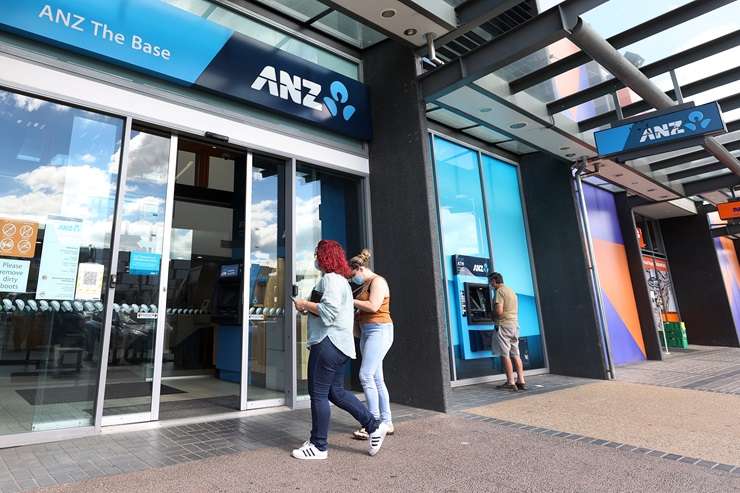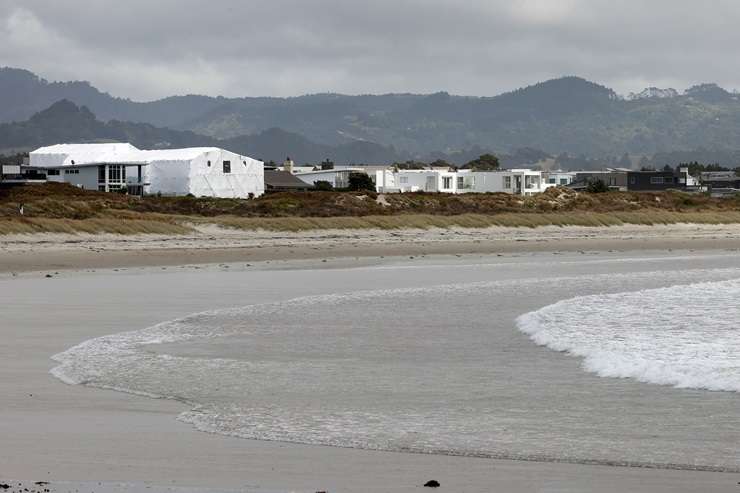The number of Kiwi homeowners with mortgages of at least $2 million has more than doubled in the last four years, according to new data supplied to OneRoof.
Figures from Centrix credit bureau show there were 14,188 borrowers in January with $2m-plus mortgages – up from 6441 in January 2020.
And the number of borrowers with $1m-plus mortgages jumped 100% over the same period, from 53,317 to 107,538.
The surge in seven-figure mortgages comes against a backdrop of rising interest rates and worsening financial pressure for Kiwi homeowners.
Start your property search
Centrix warned that borrowers with $2m-plus home loans were 21% more likely to go into arrears than those owing smaller sums to the bank.
Read more:
- Revealed: The big rate discounts banks are offering in private
- Tony Alexander: Why NZ has suddenly gone dark on interest rate cuts
- 'Reality check': The suburbs at risk of falling RVs
Repayments on a $2m mortgage on a standard two-year fixed rate of 7.48% (paid over 25 years) are $6242 a fortnight, or $162,292 a year. Recent borrowers would be spending an extra $60,800 a year in interest compared to those who took out similar-sized loans in 2020.
One mortgage broker told OneRoof that the jump in rates had meant that high-earning mortgage holders were driving for Uber Eats in their spare time to meet their mortgage repayments.
Unsurprisingly, the vast majority of $2m-plus mortgage-holders (74%) were from Auckland, with Wellington accounting for 9%, Waikato 5% and Christchurch 4%. For $1m-plus mortgages the breakdown is: Auckland 64%, Wellington 11%, Waikato 7%, Christchurch 6%.
Centrix managing director Keith McLaughlin said the figures covered total mortgage exposure per borrower, not per property, and includes a percentage of bridging loans, but many of the $1m-plus and $2m-plus mortgages were for individual properties
“There was a blip in the market post-Covid, when prices went through the roof and interest rates were very low,” he said. “People believed they could afford a $1m or $2m mortgage based on their income and outgoings. As a result there was a significant amount of heavy commitment.”
Also contributing to the 100% jump in large mortgages was the demand for holiday homes and rental properties post-Covid. McLaughlin said that over the first two years of the pandemic, Kiwis were purchasing holiday homes, buying rental properties, helping children into their first home or borrowing against property to prop up businesses.
“A lot of businesses are struggling at the moment and have done so since Covid. A lot of those business owners have borrowed against their houses to support their business to survive,” he said.
However, rising interest rates have led to an increase in the number of homeowners in mortgage stress in 2023. “It is likely that many of these $2m-plus borrowers are using their mortgages to fund multiple properties or their business and are becoming increasingly stressed,” McLaughlin said.

Rising interest rates have put the squeeze on mortgage-holders. Photo / Fiona Goodall
Mortgage arrears hit a four-year high in December 2023 with more than 20,800 mortgage accounts past due, up 21% from the same period a year prior. Centrix’s next data release for mortgage arrears is due out shortly and McLaughlin estimates the proportion of home loans in arrears for January and February this year will be even higher than December.
“We have figures coming out next week which will give an indication as to what’s happening in the market as far as arrears are concerned. But certainly there’s a lot more stress in the marketplace and in the mortgage sector in particular.
“Post-Christmas is always a difficult time. There’s no reason why [the number of mortgages in arrears] should come down, but there are lots of reasons why they should go up.”
McLaughlin said that while the number of $1m-plus mortgages had doubled, it was those with the $2m-plus mortgages who were struggling the most. “The likelihood of default for mortgages valued $1m to $2m is no different to those who hold mortgages less than $1m. But, for those borrowers who have $2m-plus mortgages, the likelihood of default is 21% higher.”

Baches in Omaha. Many of the $2m-plus loans were driven by holiday home purchases when interest rates were low. Photo / Fiona Goodall
Aseem Agarwal, a partner at mortgage advisory firm Global Finance, said despite changed lending conditions and high interest rates, local buyers were still finding ways to service $1m and $2m loans. “Buyers find ways to stretch themselves to get over the line,” he said.
Whether the loan size was $500,000 or $2m, banks would still check a borrower’s ability to pay, and go through household income, expenses, and the stability of incomes, line by line. “If they have no alarm bells, then they are pretty okay to approve the loan,” he said.
Agarwal said he had recently arranged a $2m mortgage for a couple with a combined income of $450,000. One is still working overseas and one is working locally in New Zealand.
But due to financial pressures, some borrowers needed side hustles to meet their financial commitments. Agarwal cited a couple who are building a home on a section they own. They had to make payments on the section loan and a separate construction loan as well as pay rent.
“They are both in good managerial positions with well known companies, and have $260,000 combined income. But to be able to afford to pay the rent and the mortgages on the section and build, they both have to do a side hustle. Both are doing Uber Eats [in their spare time].”
According to figures from OneRoof’s data partner Valocity, the nationwide median sale price for first-home buyers in Q4 last year was $720,000 but the figures vary according to region, with Auckland first-home buyers paying the most, with a median purchase price of $935,000 and first-timers in Southland paying the least ($394,599).
Valocity data shows the highest first-home buyer purchase price in Q4 2023 was $5.8m in Auckland’s Takapuna. The home was bought with a mortgage.
Research by Canstar reinforces how mortgage repayments are biting. The agency’s Bruce Pitchers said average mortgages rose 2% over the year to December 2023, but that repayments on those mortgages increased 15%.
Canstar’s most recent Pulse research showed that more and more Kiwis were cutting back on non-essentials, and sometimes essentials, to make ends meet. Mortgage stress affects homeowners in every region except Southland and the West Coast, added Pitchers.
Worst hit are borrowers in their 30s, he said. “Nearly 60% of those in their 30s have said that they’ve had to cut back on non-essential spending. Your 30s is when you’re buying a house, and you’re having a family. So those are people with tight finances anyway.”
Use the search field to find out the best mortgage deals available today.

















































































